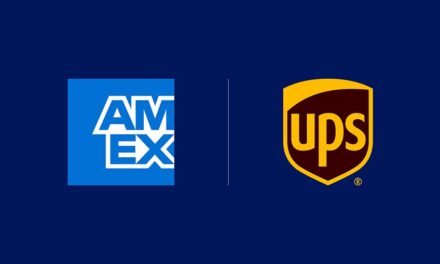
US franchises feel boxed in at UPS
United Parcel Service has seen its profitability rise dramatically in the year since rebranding 3,300 postal and business service retailer Mail Boxes Etc. (MBE) nationwide into UPS Stores, but the same is not true for some outlets, even with the increased shipping volumes.
Some UPS Stores are struggling with lower margins brought on by the standardization of lower shipping rates across the board mandated by parent company UPS in the conversion without accounting for the wide discrepancy in rents, insurance rates, and other costs that have to be borne by franchise owners.
MBE franchise owners who chose to retain the old name are saddled with stores they cannot sell. When they opted out of the UPS conversion, they saw the problems now facing UPS franchisees.
The problems have led to a lawsuit filed in Los Angeles County Superior Court by United Platinum Shield Trade Association (UPSTA), an association of MBE owners claiming that parent company UPS forced the conversion and withheld vital information that could have altered the pattern of voluntary rebranding.
"It was a numbers game," says Howard Spanier, UPSTA board chairman and an MBE owner in Southern California. "It was critical [to UPS] to get as many people on board as they could get. They bought the [MBE] franchise to increase package counts and market share. That's the beauty of this for UPS. They are getting back money in royalties and other fees but they don't have payroll, insurance, rent, utilities. They pay for nothing. One hundred percent of the cost happens to fall on the franchise owner."
Despite the legal problems and mixed results, the UPS corporate offices are still championing the rebranding effort, noting that 90 percent of franchise owners in the MBE network opted to sign up for the rebranding and that UPS will support the remaining MBEs even if they don't convert.
"We are very much committed to serving MBE as well," says Jessica Moore, spokesperson for UPS Store/MBE. "MBE is still an important brand. Franchise owners who chose to take a wait-and-see approach are now choosing to rebrand even though the [approximately USD5,000 to USD12,000] cost comes out of their pockets."
In March 2003, about 90 percent of the country's MBE franchise owners turned in their badges and signs to become UPS Stores. With about 3,300 locations, overall UPS shipping and delivery has since more than doubled over the previous year.
Part and parcel of the rebranding was the lowering of rates by 40 percent in some cases as UPS tried to achieve uniformity of pricing across the country, even though the advantages to the change were not uniform for everyone. In places where costs were too high to sustain the cuts, such as Manhattan, most MBE stores refused to be rebranded.
"For the first time in the history of MBE, we were obligated to do the pricing of UPS, in … what you were going to charge the customer," says Spanier. He added that to avoid the charge of price fixing, "They didn't say you couldn't charge any other price, just that you couldn't charge a higher price. But if you wanted to give the product away, it was fine."
In the valley, 48 of the 51 MBE outlets took up the UPS logo last March, when the parent company was offering to fully fund the switch. Because of the growth of the Las Vegas area in general, many franchise owners suffered only minimally as the growth in shipping volume gradually erased the lower margins, with some shops seeing their volumes go up rapidly by as much as 300 percent.
Other effects of the rebranding were, however, not so benign. UPS Store owners are required to push UPS shipping to customers, which led rival Federal Express to withdraw their drop-off payments. Stores then had to absorb the cost of doing the work.
Max Kostiner owns two of the three remaining MBEs in Las Vegas. More important than the quarterly fee from FedEx for drop-offs, which could reach thousands of dollars, he says, it was important to be able to serve all his customers' requests, whether FedEx or UPS, even though UPS offers discounts on its fees to high-volume stores.
"If two of your customers want different [carriers] and you have four customers waiting, the mere fact that I can say, 'yes' to both makes a better impression than anything else," he says.
Another problem for store owners is the stipulation that franchise owners must buy from authorized suppliers, even if the cost is higher. As MBE, franchisees could purchase from any supplier as long as the items met MBE specifications.
"[As a UPS Store], you cannot in any way use any [supplier] they haven't pre-approved, even though it's your money," says Kostiner. "They want to determine who can deal with, without allowing you to shop around. They want to say it's a UPS Store, but it's not a UPS Store. It's a franchise." That requirement could also become challenging for stores located in remote areas without access to UPS approved vendors.
"The selection of the vendor is going to be an issue with franchisees across the nation," says a local UPS Store owner, who asked to remain anonymous. "It's an independence issue. Las Vegas has a diverse field of vendors but we're out of the competition."
The lawsuit is being amended to include UPS Store franchise owners, contending that the company created a new franchise that is not operating as previously agreed. According to Spanier, the court will rule whether a class action exists within the next month or two.
The lawsuit claims that UPS withheld critical details of a test market it conducted in November 2001 in six cities to study the affect of the possible rebranding. According to UPS, the UPS Store name was the overwhelming favorite, beating out the old MBE label or combining the two.
Spanier claims that UPS did not reveal details of the test, such as whether stores that experienced growth under the UPS name were newer stores in growing locations or established stores in older neighborhoods. Kostiner adds that UPS didn't provide him with the names and numbers of all the owners in the test so he could contact them.
"The data and materials, nothing was supported," he says. "They had the same two or three facts that were held out as copasetic. They never had facts that could be independently verified. They presented the information as 'Trust me' and 'I think this is great because …'"
Moore explains that some of the franchise owners participating in the test would not talk to every franchise owner who might call, but says UPS provided the names and numbers of those who would. According to Spanier, UPS refused to allow the data from the tests to be audited by an independent firm.
Kostiner is pessimistic, saying that old owners will eventually be driven out and a new cadre, willing to submit to all of UPS' demands and pay for them, will ultimately become the norm. For him, it is an issue of principle.
"UPS wanted to do everything in its power to get everyone to look as if they were UPS employees and have control," he says. "When it's my money, my risk, my liability and my employees, for them to come along and have everyone look like the big brown thing [wasn't going to happen] … I can't sell it as an MBE and I have to shell out money to modify it to UPS. I have to pick up the tab either way … They have USD35 billion and I've got two bucks. What am I going to do?"












